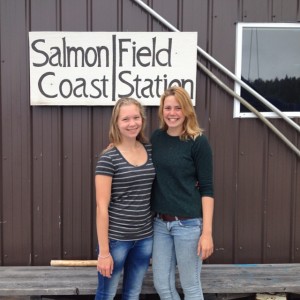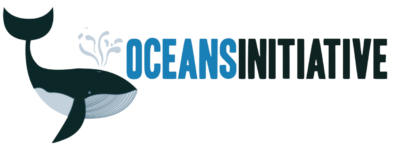We’re so grateful for this week’s special guest post from Inge van der Knaap, a Erasmus Mundus Master’s student in Marine Biodiversity and Conservation. Inge and her assistant, Sofya Reger, recently completed a beautiful experiment on noise and fish in collaboration with Salmon Coast Field Station. Inge produced a great video introducing people to her study. We’ll post it here, with her description and some photos below. Let us know what you think! And many, many thanks to those of you who donated to our charity to support this work.
[KGVID width=”640″ height=”480″]https://www.oceansinitiative.org/wp-content/uploads/2015/02/Inge_Project_lowres.mov[/KGVID]
Inge’s guest post:
Noise pollution is a relatively new topic in marine sciences. Little is known about the impact of underwater noise on marine life, while the number of ships travelling the seas still increases every year. This might not seem of major concern since our oceans are large and take up more than 70% of the planet’s surface; however noise travels 5 times faster and further in water than in air!
In a busy shipping area like the Strait of Georgia, where thousands of cargo ships pass through every year, the underwater noise production will have consequences for the marine life. This will become an even bigger concern in relation to proposed increase in tanker traffic to and from the port of Vancouver.
Many marine species are vocal and rely on their auditory senses to locate their prey. Numerous studies have investigated the effect of boat noise on cetaceans; however, effects on the largest group of marine vertebra; the fish, has not been studied much yet. In the quiet surroundings of the Broughton Archipelago myself, Inge van der Knaap (a marine conservation master’s student) and Soyna Reger (an undergrad biology student) have conducted a pilot study designed to investigate the effect of boat noise on the behaviour of a Pacific salmon and herring, and a rockfish species: fish species of ecological, cultural and economic value.
This pilot study was done during the summer of 2014 at the Salmon Coast field station under the supervision of Dr Rob Williams, of Oceans Initiative. Soyna and I collected the fish with the help of the experienced Salmon Coast staff and local people living around the area. We made sure that the fish were not harmed during the collection and all of them were released after our study was completed.
The fish where held inside large net pens and their behaviour was monitored using underwater camera’s. The noise was produced by a small motor boats passing the nets at different speeds and distances and noise levels in the net pens were recorded with a hydrophone (provided by David Hannay of JASCO Applied sciences).
The analysis of the data is still ongoing as part of my master thesis dissertation, which will be finishing in June this year. The results will hopefully give us an indication of the impact vessel noise can have on different fish species and provide a baseline for future studies in this area.


Hello,Inge. I’d be very interested to learn the results of your study as I am a marine biologist concerned about the effects of shipping noise on Pacific herring. Could you please send me a link to whatever you’ve published so far? I am opposed to Kinder Morgan’s proposal to twin its pipeline from Alberta to Burnaby B.C., Canada, and am focusing on tanker traffic and underwater noise pollution. I was lead author of a paper on how Pacific herring respond to the noises of the fishing fleet (Schwarz, AL and GL Greer 1984. Can. J. Fish. Aquat. Sci. 41(8): 1183-1192). Thank you!
This is a great study, I look forward to the results. I am specifically interested in how whale watching vessel noise impacts salmon behavior and how that in turn diminishes the orca’s ability to efficiently locate their prey. Thank you.
Thanks, Scott. We’ve found that killer whales spend 18-25% less time feeding in the presence of boats than in their absence. We hope this new study by Inge van der Knaap will help us understand how much of that is due to disturbance on the whales’ part, physical acoustic masking of echolocation or vocalization signals, and how much may be due to changes in the behaviour of the fish. So much work to do! Thanks again for your interest.